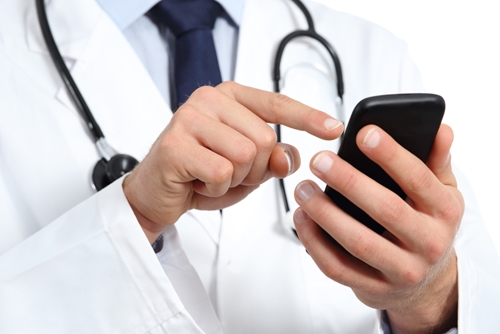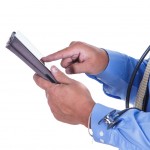Physicians and patients can benefit from easier-to-use EHR interfaces
As more people begin to use electronic health records, the benefits and follies of certain systems become more apparent. One of the issues regarding the adoption of EHRs is the difficulty of learning how to use them. By increasing the accessibility and ease of using EHR software, physicians can provide better care.
Benefiting patients
A recent study conducted by researchers at the Medical College of Wisconsin and published in Health Affairs found that EHRs provide emergency department physicians and radiologists with information that benefits patients' care. Three neuroradiologists at Froedtert and the Medical College Froedtert Hospital analyzed 2,000 head CT scans. They compared information gathered by emergency department physicians with data collected by radiologists who had access to patients' EHRs. The radiologists stated that the additional data found in the EHRs would have a significant impact of the interpretation of the CT scans.
In 9 percent of the cases, the neuroradiologists reached a consensus that the knowledge gathered would be adversely affected by the lack of EHR data. The information found in the EHRs was rated as having a clinically significant impact on patient care and positive outcomes in 22 percent of cases.
"This study exemplifies the power of EHRs and their potential impact on patient care and positive outcomes. Health care providers must recognize the value of implementing EHR's and foster their widespread adoption," said John L. Ulmer, M.D., professor of radiology and chief of neuroradiology at the Medical College of Wisconsin and the study's corresponding author. "The federal government has made a significant investment in the adoption of these systems, particularly with the challenges of expanding remote access to high-quality care."
Difficulties with the technology
Medscape's "EHR Report 2014" states that 16 percent of the survey's respondents – 18,575 physicians from 25 specialties – claimed that EHRs are too complicated for themselves and their staff to learn. This difficulty of use is impeding on patients' quality of care. The report demonstrated that 81 percent of EHR software users become more comfortable using the software over time.
Mony Weschler, chief applications strategist and architect for Applications Technology Services for Montefiore Medical Center at Albert Einstein College of Medicine, suggested in an InformationWeek article that the creation of open-source EHR platforms and enhancement of APIs will foster innovations for these systems. More physicians would be willing to use EHR software if the user experience improved. Weschler stated that open platforms, similar to iTunes and Google Play, would foster creativity and build on existing architectures.
Some hospitals, such as New York-Presbyterian, have created incubators for as many as 50 health technology startups, mHealth News reported. The source states that only 20 percent of health care applications are either existing websites or clinical tools turned into mobile applications.
The creation of easier to use interfaces would allow the 16 percent of Medscape survey respondents, who claim EHRs are too difficult to, adopt the systems. This will provide everyone with better care and save smaller health clinics money due to a decrease of training sessions. Simple user interfaces have been adopted by all other forms of technology and medical systems can learn from that.



